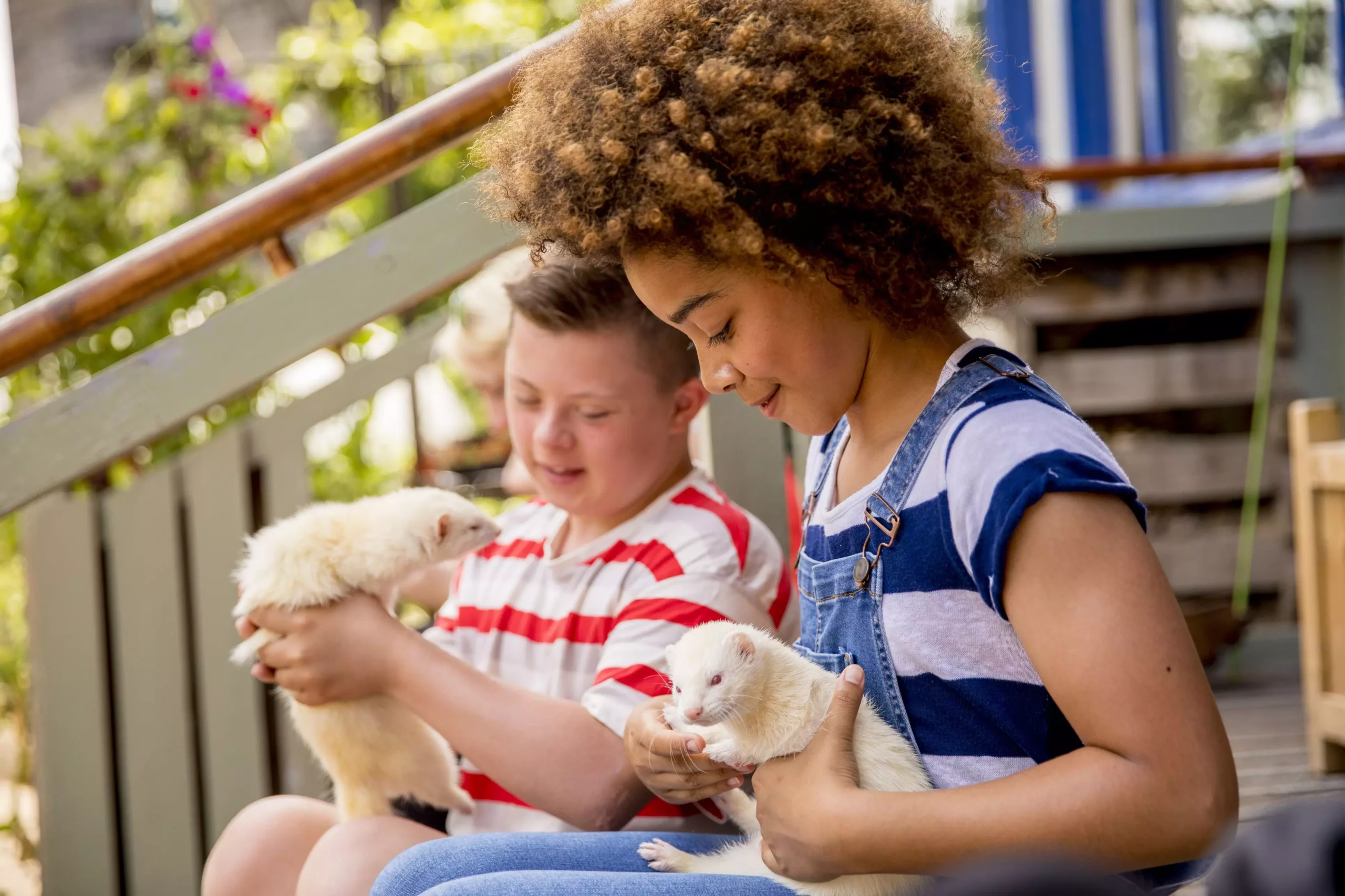Ferrets are renowned for their playful spirit and exuberance, making them beloved companions for many pet enthusiasts. With their slender, agile bodies and keen intelligence, these creatures offer an engaging alternative to more traditional pets. Their playful antics can easily captivate an audience, and their endearing nature has drawn comparisons to both cats and dogs—those two ever-popular pillars of the pet world. But beyond their delightful demeanor, prospective ferret owners should be well-informed about the unique requirements and responsibilities that come with their care.
Ferret Behavior and Socialization
At heart, ferrets thrive on interaction. Social creatures by nature, they require frequent engagement with their human companions and benefit greatly from training that nurtures their curiosity. Interestingly, while they are not strictly nocturnal, ferrets have a distinct preference for dawn and dusk activities, which can provide an interesting dynamic for owners who work different shifts or have varying schedules. Because they are highly social, keeping ferrets in pairs or small groups is often beneficial; they naturally enjoy companionship and typically exhibit better mental health when they have a buddy to romp around with.
However, it’s essential to note that ferrets, if frightened or anxious, may exhibit nippy behavior. This is a critical factor for new owners to consider, as it emphasizes the need for proper socialization from a young age. While they may bond closely with their human families, they still maintain a predatory instinct that can impact their interactions with smaller pets in the household. For instance, compatibilities can vary drastically when it comes to ferrets and other small animals, reinforcing the importance of careful introductions and ongoing supervision.
Creating a Comfortable Habitat
Understanding the ferret’s habitat needs is vital for ensuring their well-being. Ferrets require substantial living spaces, and a large, multilevel cage offers them the room to play, rest, and explore. Generally, the cage must be hedge and escape-proof, considering their reputation as masters of evasion. Inadequate housing can lead to their adventurous spirits posing risks to both themselves and household belongings. Ideally, they should spend a minimum of four hours outside their cage daily, during which time ferret-proofing becomes essential. Owners must ensure that potential hazards—such as dangerous appliances, hazardous cords, and trash—are mitigated before letting their pets roam freely.
Optimal habitat conditions extend beyond mere space; temperature control is paramount. Ferrets flourish in environments ranging from 60 to 80 degrees Fahrenheit, and drafts or fluctuating temperatures can lead to health issues. With proper care and an engaging home environment filled with toys, hammocks, and tunnels for play, ferrets can truly thrive as joyful members of the family.
Nutritional Needs of Ferrets
As obligate carnivores, ferrets necessitate a high-protein diet focused on meat, which is essential for their health. Unlike some other pets, they cannot effectively metabolize plant matter, rendering grains and vegetable-based foods inappropriate. Due to their unique digestive system, ferrets must eat frequently, ideally every three to four hours, so providing constant access to quality commercial ferret food is essential. Supplementing their diet with occasional treats such as cooked lean meats is a rewarding way to bond with them, though owners should be cautious not to overindulge them with high-sugar or fibrous foods.
Regular veterinary care is also vital for ferrets. They are prone to specific health issues like adrenal gland disease and digestive problems, making preventive check-ups essential. Keeping an eye on their dental health is similarly important, as periodontal disease can cripple their happiness. A responsible pet owner must stay vigilant about their ferrets’ well-being, ensuring they receive all vaccinations and prompt medical attention when necessary.
Adopting Ferrets: A Rewarding Experience
For those charmed by the prospect of adopting a ferret, it’s critical to endeavor into trustworthy channels, whether through reputable breeders or pet adoption agencies. Both options often yield a wealth of information regarding the animal’s history, temperament, and required care. While the initial cost of acquiring a ferret may fluctuate between $100 to $500 based on age and quality, the long-term rewards richly outweigh the investment.
New owners must consider their lifestyle to ensure they can provide the necessary commitment to their ferret companions. The playful energy of ferrets can be contagious and joyful, but it demands equally playful and dedicated owners. Understanding their needs, establishing routines, and providing engaging interactions will ensure that both owner and pet experience a fulfilling relationship.
Ferrets offer a unique experience in pet ownership: their unparalleled playfulness, coupled with their inquisitive minds, produce endless moments of entertainment. However, the intricacies of their care and socialization require thoughtful consideration. Embracing the challenges that come with introducing such a spirited creature into your home can yield a bond that is deeply rewarding, proving that ferrets are not just pets, but vibrant members of the family.

